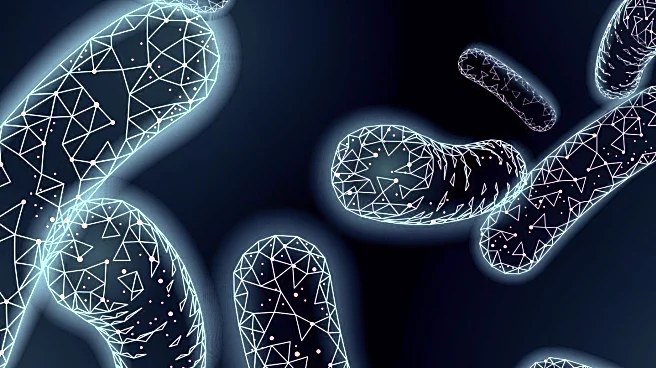What is the story about?
What's Happening?
A recent multicenter study has made significant strides in the noninvasive detection of AFP-negative hepatocellular carcinoma (HCC) by identifying autoantibodies as serological biomarkers. The study utilized serological proteome analysis and protein microarray techniques to pinpoint potential autoantibodies for HCC. Following a rigorous validation process using ELISA in patients with AFP-negative HCC (ANHCC), eight autoantibodies were confirmed as superior biomarkers. These include Survivin, NPM1, GNAS, SRSF2, GNA11, PTCH1, GAPDH, and HSP90. The study developed diagnostic models using four machine-learning methods, with the Logistic regression model emerging as the most effective. This model achieved an area under the ROC (AUC) of 0.883 in the training dataset and 0.840 in the validation dataset. When applied to the entire HCC patient cohort, the model reached an AUC of 0.825, with a sensitivity of 66.4% and a specificity of 84.2%.
Why It's Important?
The identification of autoantibodies as biomarkers for AFP-negative HCC is a breakthrough in the early detection and diagnosis of this challenging cancer type. AFP-negative HCC is notoriously difficult to diagnose due to the absence of the alpha-fetoprotein marker, which is commonly used in HCC detection. The new diagnostic model not only improves the accuracy of detecting AFP-negative cases but also enhances overall HCC diagnosis when combined with AFP, achieving an AUC of 0.945. This advancement could lead to earlier interventions and better treatment outcomes for patients, potentially reducing mortality rates associated with late-stage diagnosis. The integration of machine learning in developing these diagnostic models also highlights the growing role of technology in advancing medical diagnostics.
What's Next?
The study's findings pave the way for further research and development of noninvasive diagnostic tools for liver cancer. Future steps may include larger-scale clinical trials to validate these findings across diverse populations and healthcare settings. Additionally, the integration of these biomarkers into routine clinical practice could be explored, potentially leading to the development of standardized diagnostic protocols. The medical community and healthcare providers may also need to consider training and resources to implement these new diagnostic techniques effectively.
Beyond the Headlines
The use of autoantibodies as biomarkers represents a shift towards more personalized and precise medical diagnostics. This approach could be extended to other types of cancers and diseases, where traditional markers are insufficient. The ethical implications of using machine learning in medical diagnostics, such as data privacy and algorithmic bias, will need to be addressed as these technologies become more prevalent. Furthermore, the success of this study underscores the importance of collaborative research efforts in advancing medical science.















